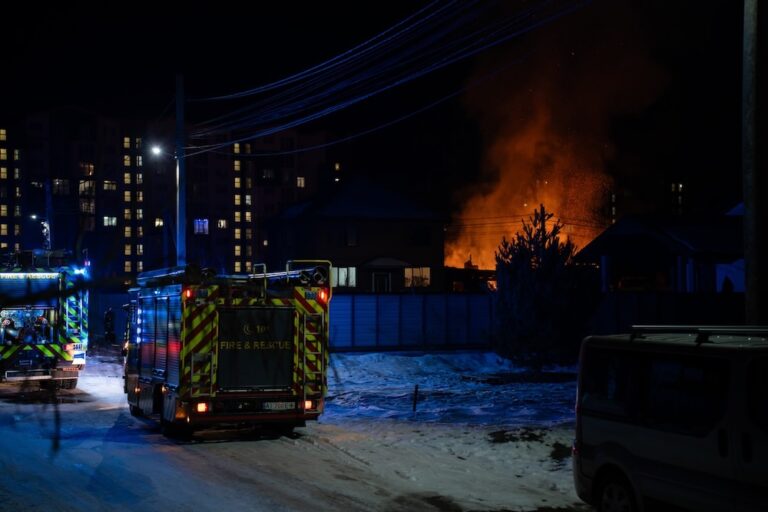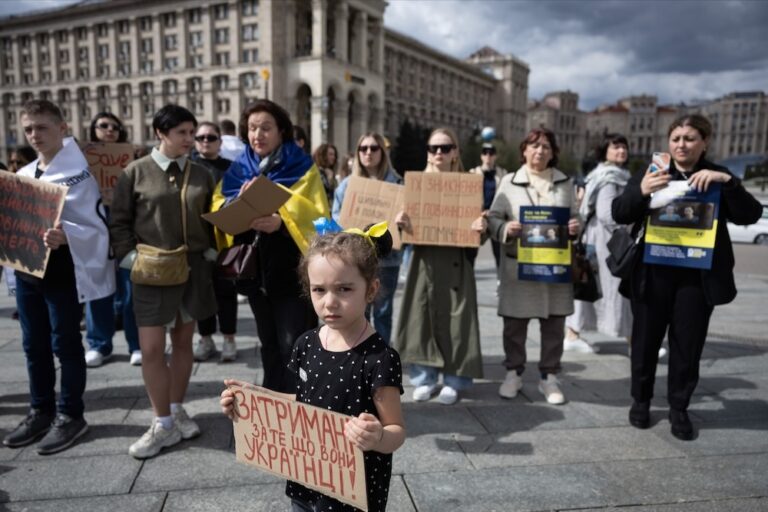(CJES/IFEX) – On 10 October 2008, the Ufa Oktyabrsky District Court issued a ruling in the defamation lawsuit filed by Justice Rosa Gilyazitdinova against the newspaper “Chas Pik. Na Magistrali”. The court ordered the newspaper to refute information contained in the article “Lessons of Courtesy” and apologise to Gilyazitdinova, chair of the Arbitration Court of […]
(CJES/IFEX) – On 10 October 2008, the Ufa Oktyabrsky District Court issued a ruling in the defamation lawsuit filed by Justice Rosa Gilyazitdinova against the newspaper “Chas Pik. Na Magistrali”. The court ordered the newspaper to refute information contained in the article “Lessons of Courtesy” and apologise to Gilyazitdinova, chair of the Arbitration Court of the Republic of Bashkortostan. The court also ordered the newspaper to pay Gilyazitdinova 10,000 rubles (approx. US$365) in moral damages.
In her lawsuit, Gilyazitdinova demanded a refutation of the information in the article “Lessons of Courtesy”, published in the 28 November 2007 edition of “Chas Pik. Na Magistrali”. She also submitted a claim to recover 10 million rubles (approx. US$365,000) in moral damages from the newspaper. She had earlier asked for a criminal case to be opened, but her request was denied. The decision declining to open a criminal case stated: “The facts stated in the article published by the newspaper “Chas Pik” were confirmed during the probe, i.e., no evidence of the crime enshrined by Article 129 of the Russian Criminal Code (slander contained in a public speech in the mass media) was found in the actions taken by the person who published the article.”
The article dealt with the Gilyazitdinova’s fulfillment of her professional duties. Specifically, the article accused Gilyazitdinova of being unfit for her position and violating the requirements outlined in the Law on the Status of Judges in the Russian Federation and the Code of Judicial Ethics. The article was based on excerpts from an address by Bashkortostan’s Council of Judges to the Russian judges’ qualification college, which asked for “early termination of the judge’s (Gilyazitdinova’s) powers.”
The defendants disagree with the court decision and intend to contest it in the higher courts, including the European Court of Human Rights. The newspaper’s editor, Svetlana Valiyeva, believes “the decision is definitely subject to reversal. No one has a right to force anyone to apologise.” The editor said the court has failed to take into account the decision made by linguistics experts, who found that the article did not contain any invective or potentially insulting value judgments expressed with the use of language devices (words, word combinations or phrases) that could potentially belittle Gilyazitdinova’s honour, dignity or business reputation.” Moreover, according to the defendant’s information, “the court ignored the evidence and materials, which were provided by the defendant and proved that the defendant was right.”
CJES is providing legal and informational support to the editorial board of “Chas Pik. Na Magistrali” in this case.
CJES comment: the principle of the inviolability of a judge is aimed at protecting the interests of the justice system and cannot be a judge’s personal privilege. In this case, the information on the reasons for Gilyazitdinova’s punishment would not have affected the administration of justice and was not aimed at encroaching on the interests of the justice system. However, this information was very important for the formation of public opinion on issues relating to fair judicial proceedings and the responsibility of judges.
CJES is convinced that the journalists should continue defending their constitutional rights, namely, the right to freedom of expression, and the right to receive, use and disseminate information. After all means of protection in their home country are exhausted, they should turn to the European courts.
One of the most recent lawsuits won by a journalist seeking protection of his right to freedom of expression is the ruling issued by the European Court of Human Rights in the case involving Russian journalist Gennady Godlevsky against the Russian Federation. The European Court of Human Rights ruled that the Russian Federation had breached Article 10 of the European Convention on Human Rights and Fundamental Freedoms and awarded the journalist 1,000 euros (approx. US$1270) in moral damages.
Updates the “Chas Pik. Na Magistrali” case: http://ifex.org/en/content/view/full/95479


